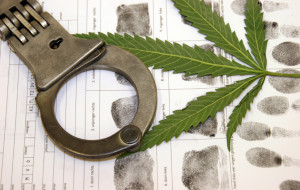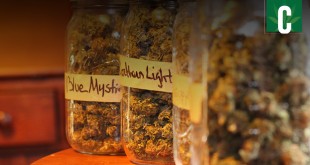Police in California are arresting far fewer people on felony marijuana charges in the wake of a vote to reclassify those crimes as misdemeanors.
 Voters passed Prop. 47 in 2014, converting several cannabis-related felonies into misdemeanors. Data recently released by the office of California Attorney General Kamala Harris show the vote has led to a sharp decline in felony marijuana busts.
Voters passed Prop. 47 in 2014, converting several cannabis-related felonies into misdemeanors. Data recently released by the office of California Attorney General Kamala Harris show the vote has led to a sharp decline in felony marijuana busts.
Overall felony drug arrests dropped by between 68 percent and 74 percent between 2014 and 2015, according to the California branch of NORML. Felony arrests on pot charges dropped by a third, from 13,000 to less than 9,000.
Criminal justice reform
This is very good news. It means marijuana legalization encourages widespread criminal justice reforms. Cannabis arrests disproportionately affect people of color, a fact reformers point to as one of their driving motivations.
The American prison system is hugely overburdened, in large part because of the scourge of the war on drugs. Low-level marijuana users and dealers have been thrown behind bars by the hundreds of thousands over the years, leading to prisons full of petty non-violent offenders.
But incarceration isn’t the worst part of the picture. Even when they’re free, these victims of the justice system are left with permanent criminal records, rap sheets that make it difficult to find work, rent, or obtain government benefits.
The United States has just 5 percent of the world’s population but 25 percent of its prisoners, a situation that can’t be sustained over the long term. Something has to give, and it will almost certainly be cannabis prohibition.
Misdemeanor arrests on the rise
The news in California isn’t all great, though. The statistics released by the state in July also show misdemeanor drug arrests doubled between 2014 and 2016, from 92,000 to 163,000. That suggests police are making many of the same arrests but are filing misdemeanor rather than felony charges.
“The number of misdemeanor drug arrests has been slowly rising in California since a drop between 2010 and 2011,” California NORML said in a statement.
The drop in felony arrest rates affects not only California adults but children as well. Roughly 800 youths were busted on felony pot charges last year, a drop of 1,200 from a few years earlier.
DUI busts also dropped slightly, from 151,000 in 2014 to 138,000 in 2015. That continues a downward trend, though it’s hard to say exactly how important marijuana reforms have been to this decline.
Surging prison costs in California
The 2014 initiative drew strong support among conservative voters fed up with exploding prison costs. Over the last 36 years, California built one new college and 22 prisons.
Prop. 47 passed during an off-year election, usually a tough time to sell marijuana reform. Opposition to the initiative was stiff, with police, prosecutors, and statewide lawmakers calling it a bad idea. But it sailed past voters by a wide margin anyway.
California has been a leader in cannabis reforms since 1996, when voters approved the first legal medical marijuana program in the world. Pot was partially decriminalized in the 1970s, but the last vestiges of criminality were removed in 2010 when the legislature reclassified simple possession as a civil violation rather than a misdemeanor.
This year the November ballot will include an item that would legalize marijuana for recreational use. If it passes, the Golden State would immediately become the world’s largest legal cannabis market. The initiative is expected to pass.
—
Tell us: What effect would full legalization have on arrest rates in California? Would it make the criminal justice system more fair? Leave a comment below.
 California Marijuana Market Breaking "Marijuana News" from CA
California Marijuana Market Breaking "Marijuana News" from CA





